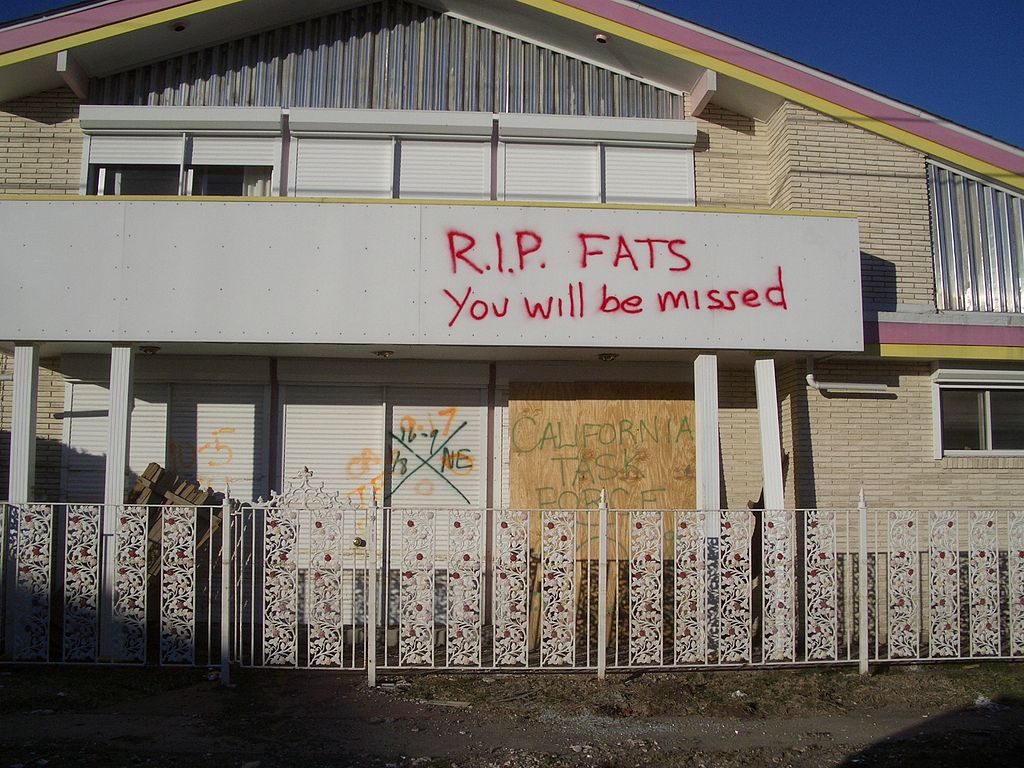Fats Domino, Who Survived Katrina, Dies at 89
By • October 26, 2017 0 1907

Fats Domino died Oct. 24 after a long illness at his home in Harvey, Louisiana, at the age of 89, and the internet filled with the sound of tributes, saxophones and his singular fingers crossing a piano like a guy being chased.
For people who grew up (or not) at the dawn of rock and roll, the news was sad and not a little devastating. The sense of loss — another giant lost from the early days of a uniquely American genre of music that changed us all — was direct. There he is and was, on the piano with his band, showing off, engaged, Fats in all his glory, coming out of New Orleans, a big man, with a big smile, with big, unforgettable sounds.
Funny thing is that, after that initial thump of sadness, the next thing that would happen is all these sounds and songs that you had maybe sung or danced to, or just brought up out of the bountiful expanse of YouTube, suddenly gurgled up again and gave us back our young days at the hop, at the noonday dance in high school, white kids learning to jitterbug, having “big fun on the bayou.”
For small-town or rust-belt white kids, the 1950s were a skittish time, culturally, musically and in other, more mysterious, ways. Sure, these were the days when Elvis Presley — a white truck driver from Memphis who could sing rhythm and blues, or rockabilly, or blues — was king, but even he acknowledged that he didn’t exactly invent rock and roll, and that if there was a king it was Fats. (You can catch Fats with Elvis singing “Blueberry Hill,” arguably the biggest of Domino’s 45 top-40 hits, on You Tube.)
“Let’s face it. I can’t sing like Fats Domino can,” Elvis said.
His sound — the videos, the concert halls — were full of those growly saxophones starting back in the 1940s, through the 1950s, where he soared, even as white singers from Elvis to Jerry Lee Lewis (and even later, in the 1960s, the Beatles) played his music. John Lennon said there “would be no Beatles without Fats Domino.” And also Chuck Berry, and also Little Richard and the Platters and Ben E. King and Jimmy Reed and a pantheon of African American rockers, blues men, call them what you like (Domino, born Antoine Dominique Domino Jr. in New Orleans in 1928 called it Dixieland once). It was R&B and rockabilly, irresistible as a cold one.
On any given day in the 1950s, you might be listening to “Blueberry Hill” (which came from Louis Armstrong and Gene Autry much earlier) being sung by Domino or “I’m Walking” being done by Ricky Nelson or Domino and “Ain’t That a Shame” by Domino — cleaned up to within an inch of a Sunday sermon by Pat Boone, the clean-cut white pop singer who wanted to change the phrase to “Isn’t That a Shame.”
Domino was more or less discovered at his own insistence by Billy Diamond, a New Orleans bandleader who saw him at a backyard barbecue where he was impressed enough to hire him. Domino played with the Solid Senders at the Hideaway Club in New Orleans. Diamond had nicknamed him “Fats” after legendary pianists like Fats Waller and Fats Pichon or maybe just because.
He was off to the races after being signed to Imperial Records by Lew Chudd, for whom he recorded “The Fat Man,” which had first appeared as “Junkers Blues.”
You can trace an arch of rock and roll through the 1950s and 1960s: “Careless Love,” “Reeling and Rocking,” “I Can’t Go On,” “Nobody Loves Me,” “I’m Gonna Be a Wheel Someday,” “I’m Walking,” “Fell in Love on Monday,” “Blue Monday,” “I’m Leaving Tomorrow” and a host of others.
He was an early inductee into the Rock and Roll of Fame and appeared in two movies, including “The Girl Can’t Help It” with Jayne Mansfield.
He was married to Rosemary Domino from 1947 until her death in 2008 and was the father of eight children. Even after his success, he continued to live in his old neighborhood, the lower Ninth Ward, until after Hurricane Katrina, when he moved to a suburb of New Orleans.
During Hurricane Katrina in 2005, Domino chose to stay with his family in an area that was heavily flooded, so much so that fans and friends assumed he had perished. Someone had spray-painted his home with “R.I.P. FATS You will be missed.”
That sentiment seems appropriate now. But then, and now, we know what he’d be doing: walking to New Orleans in some special musical heaven, playing, singing:
“This time I’m walkin’ to New Orleans/I’m walkin’ to New Orleans/I’m gonna need two pair-a shoes/When I get through walkin’ these blues/When I get back to New Orleans.”
Look for a guy with a suitcase in his hand.

